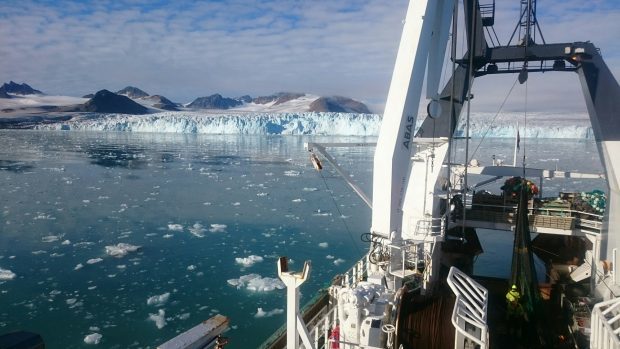An Oban-based science institute will lead the UK’s Arctic research over the next five years through major projects worth more than £5million.
The Scottish Association for Marine Science (Sams) won two of the four major research grants in the Natural Environment Research Council’s (Nerc) £10m Changing Arctic Ocean programme.
Sams researchers are also involved in the other two projects, led by Leeds and Liverpool universities.
The Arctic region has seen the most dramatic changes in climate over the past few decades, with ice melting at a quicker rate each year because of rapid warming. While the daily average global temperature rose by 0.55 degrees Celsius from 1979 – 2000, the temperature in the Arctic rose by 6.42 degrees Celsius for the same period.
The average Arctic sea ice cover for November 2016 set a record low, leading to suggestions that sea ice cover could be at a tipping point, from which that the region may not recover.
The two SAMS projects, Arctic PRIZE and DIAPOD aim to help us understand these changes in the Arctic and how they will affect the climate, ocean properties, marine life and food stocks across the northern hemisphere.
They will benefit from Sams’ expertise in marine biology, physical oceanography and marine robotics.
The effect of a warming Arctic Ocean on a small shrimp-like animal that is a vital source of food for seals, whales and fish, will be examined.
Another project will seek to establish a year-round picture of the Arctic ecosystem, using robots.
Scottish Environment Secretary Roseanna Cunningham said: Congratulations to Sams for securing these two major research projects which will help people across the UK understand how changes in the Arctic are affecting the climate, oceans and marine life north of the equator.
“Scotland has a history of creating effective research networks and it is great to see this continuing with these projects, which will not just include Scottish institutes but also European and North American partners.”
